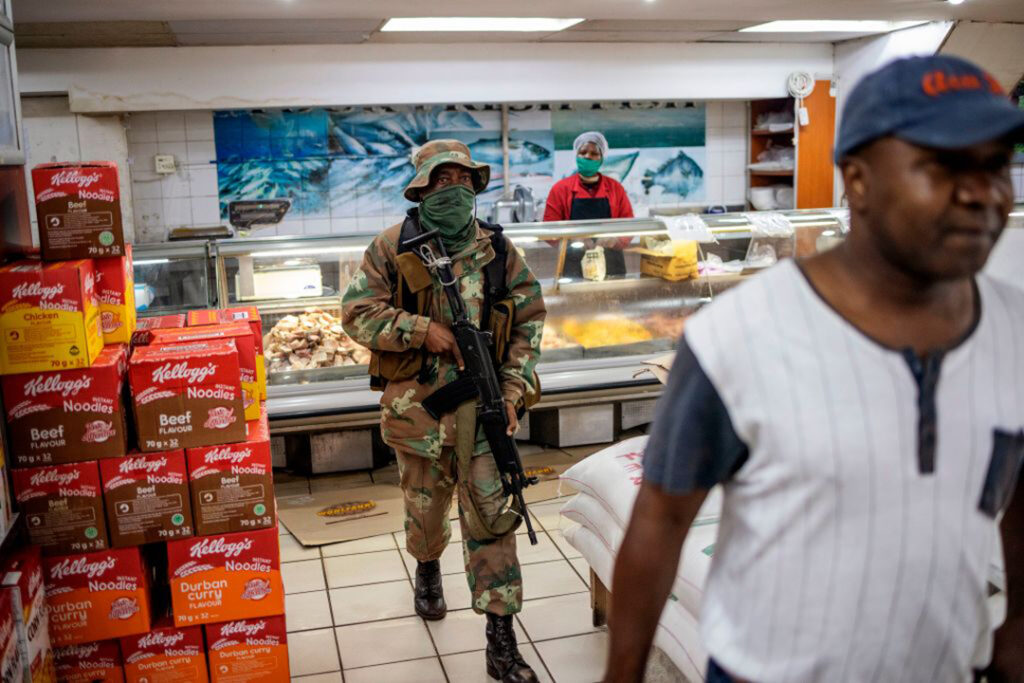ADF STAFF
Despite the threat of another wave of COVID-19 in the coming months, South African authorities are trying to relax their tight grip on lockdowns and lockdown enforcement.
Health officials say that a number of factors are contributing to the possibility of a fourth COVID-19 wave in the country around December 2021 or January 2022. The country is in the waning days of its third wave, which peaked in early July. COVID-19 investigator Shabir Madhi said that should such a fourth wave begin, lockdowns should only be enforced for “specific, relevant provinces.” He said that a national approach, which the country has taken so far during the pandemic, makes no sense because each province is affected differently.
“We need a more nuanced approach — restrictions haven’t assisted in preventing infections,” Madhi said, according to the medical news and information site Clinical Trials Arena. He noted that the goal of lockdowns is to reach zero community infections, which is not the endgame for South Africa’s health policy authorities.
Police officials are saying that even if another wave strikes, they are going to talk to citizens more and arrest them less. Police Minister Bheki Cele told the Sunday Times that during the peak of the COVID-19 pandemic, citizens complained that police were overly aggressive in enforcing rules and regulations. Cele said officials began rethinking their approach after the current lockdown was eased to Alert Level 1 in September.
For now, Cele said, police will use a gentler strategy in dealing with the public.
“You go around asking people where their masks are and they all take their masks out of their pockets, without fail,” he told the Times. “The regulation says that I should remind you, and if you don’t have it, I should arrest you.”
Cele said social distancing is the biggest factor in controlling the disease. Authorities said that such distancing has been a particular problem in recent weeks, in the buildup to the November 1 municipal elections throughout the country.
Cele said that the country’s unlicensed drinking establishments, called “shebeens,” remain a problem and a source of concern to authorities because of their unsafe practices.
“I have received a lot of calls, even after midnight, that they don’t close their establishments,” Cele said. “Maybe there is still a lot of enforcement that is needed there.”
Authorities were not hesitant to make arrests in the first year of COVID-19. In April 2021, authorities reported that 411,309 people had been arrested for breaching regulations since a lockdown began at the end of March 2020 and lasted through February 2021. In most cases, those arrested were accused of breaching gathering rules or violating the evening curfew, the South African website BusinessTech reported.
South Africa’s military also has played a role in enforcing the country’s lockdown rules, and like the police, have been accused of being heavy-handed. Almost from the start of the COVID-19 lockdown in 2020, African News Agency reported, citizens began complaining about excessive force and physical abuse at the hands of security forces enforcing the restrictions.
On Sunday, October 31, Cele instructed the nation’s police to take all necessary steps to assure that all citizens were able to safely vote in the country’s elections the next day. Cele said that at least 10,000 South African Soldiers would be joining police officers for extra security.
Since the pandemic began, South Africa has had nearly 3 million confirmed COVID-19 cases and nearly 90,000 deaths, according to the World Health Organization.

